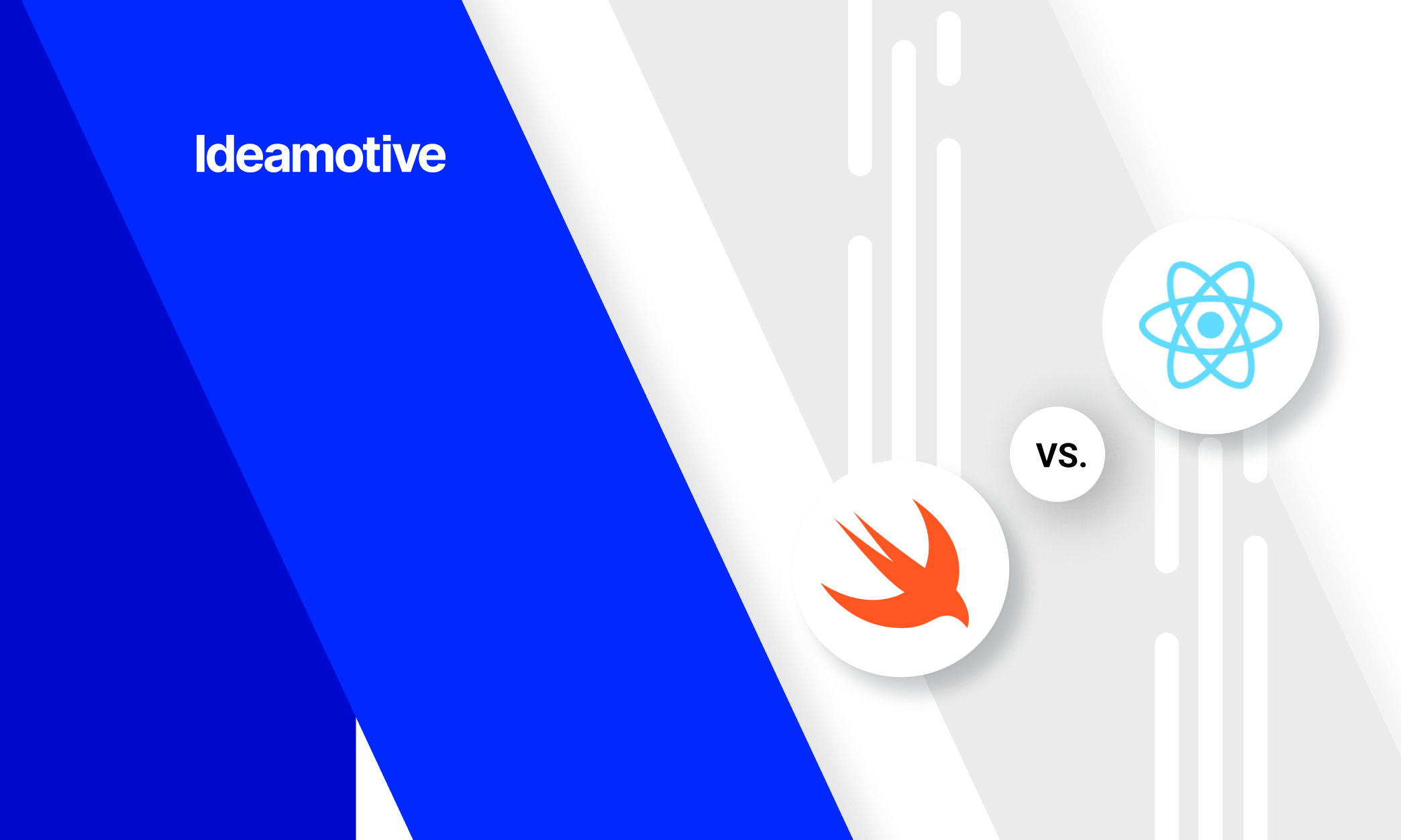Swift vs Objective-C: Which One to Consider For Your Next iOS App? [2023 update]
Aug 19, 20209 min read

Dawid Karczewski
Senior full stack developer and CTO at Ideamotive.
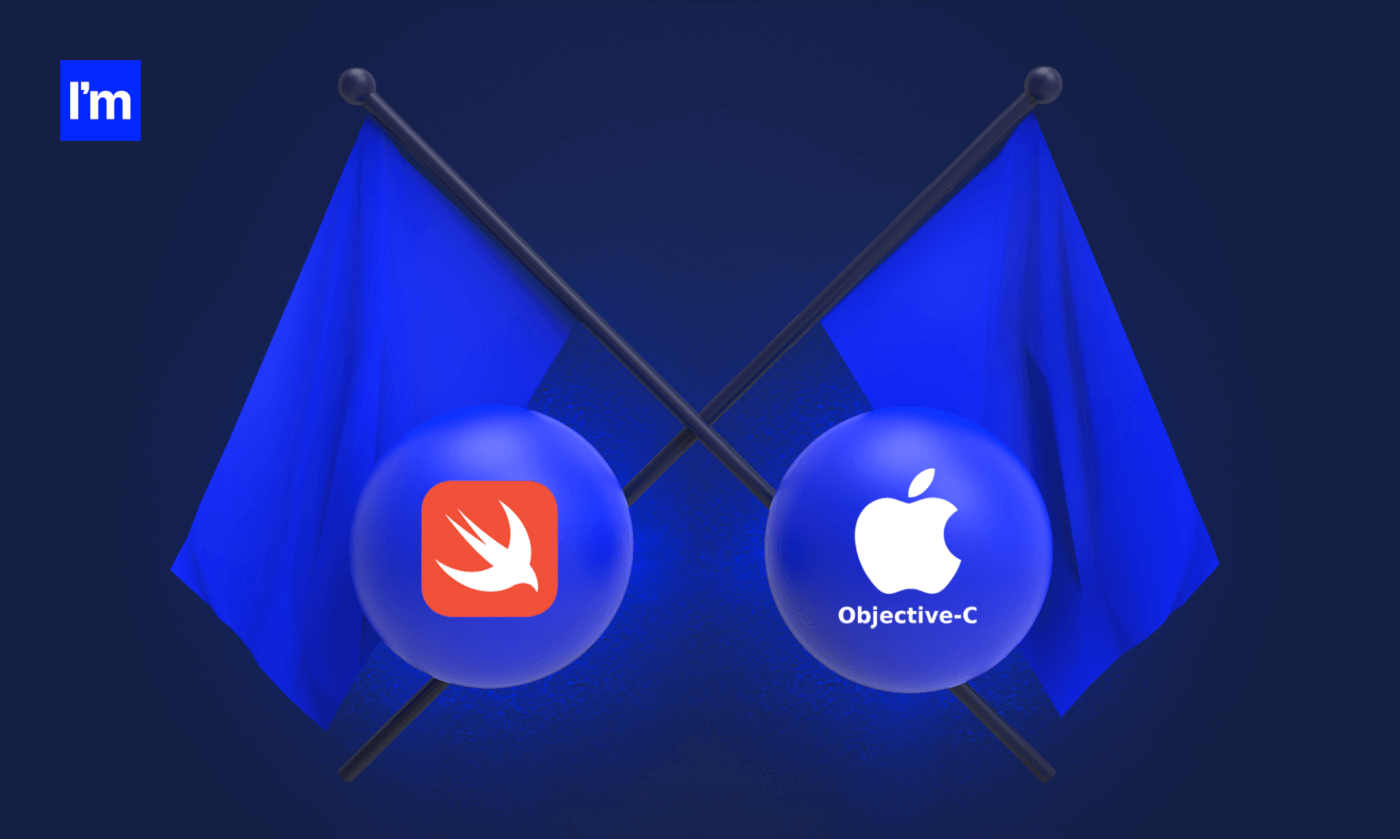
It was 2014 when Apple introduced a new easier way to build iOS apps - Swift. However, in 2020 IT managers and CTOs still struggle to choose between Objective-C and Swift. To dispel any doubts we compared them and prepared this guide.
UPDATE 2023: We made sure, that data presented is still relevant, and if it wasn't, we updated it.
What is Objective-C?
Objective-C is an object-oriented programming language used by Apple since the 90. It combines the advantages of two earlier languages - C and Smalltalk.
In 1996 Apple overtook NeXT, which developer tools would use Objective-C. These tools were later included in Xcode. That's how Apple began using Objective-C for Mac OS X development. As a result, Objective-C became the first choice language for everybody who wanted to create an application for OS X and iOS.
What is Swift?
Swift was created by Apple and first introduced at its Worldwide Developers Conference in 2014. It is a distinct language specifically designed for the development of software for Apple's operating systems. Since its introduction, the language has been continuously refined and enhanced. The most recent stable version, Swift 5.8, was released on March 30, 2023. For the most up-to-date information and details on new features and improvements, please check Apple's official Swift website.
What's the point of Objective-C vs Swift comparison?
When it comes to the dilemma of choosing between Swift and Objective-C for iOS app development, it boils down to a couple of key reasons.
Firstly, both Swift and Objective-C are backed by Apple and utilized for the development of its products. They're both native iOS languages, meaning applications written in either language will seamlessly integrate with the iOS ecosystem, offering top-notch performance, security, and user experience. This native status makes them the go-to choices for iOS application development, ensuring that your app maintains the fluidity and aesthetic congruity expected of iOS apps.
Secondly, Swift should not be considered a direct successor to Objective-C, despite its more recent advent. These two languages possess distinct capabilities and are used concurrently in iOS mobile app development. Swift, with its modern, expressive, and easy-to-learn syntax, caters to developers seeking efficiency and speed in app development. Objective-C, on the other hand, with its robustness and extensive libraries, still holds sway in legacy projects and situations requiring deep-level hardware interaction.
These distinctions lead many developers and product managers into a quandary over which language to opt for. The choice between Swift and Objective-C is not merely about selecting a programming language, but rather about aligning with the development strategy that best suits their project requirements, timeline, and budget. Questions revolve around which language will best meet their needs, deliver optimal performance, and offer the most cost-effective solution.
As you delve into this article, you will gain deeper insights into both Swift and Objective-C, exploring their strengths, nuances, and how they align with different project requirements. By the time you reach the end, you'll be equipped with the knowledge to make an informed decision on whether Swift or Objective-C is the ideal choice for your planned iOS app.
How to compare Swift vs Objective-C?
We often compare technologies and programming languages. Partially to fulfill our needs, partially due to our urge to share this knowledge with you.
Although you could think of virtually dozens of features to compare, we decided to focus on the ten most important issues. They all influence the costs, quality, and convenience of iOS application development. The list and comparison below will help you find out, which technology is best for your project.
.png?width=602&height=960&name=Swift%20vs%20Objective-C%20tabela%201200%203%20(1).png)
-
Development environment
The development environment is where the magic happens. It is salient whether there is an easy-to-use environment, how expensive it is, and if there are any alternative solutions on the market.
If you use Objective-C to develop an iOS or OS X application, you will most probably use the Xcode IDE. There are other environments available like AppCode or Visual Studio Code from Microsoft, but they need Xcode underneath to work properly.
Xcode provides you with Software Development Kits that give virtually everything you will need for iOS app development. Tools, compilers, APIs, and frameworks — they’re all there. Moreover, there are customizable pre-built elements you can use in your application.
Xcode is integrated with Cocoa and, what’s even more important here, Cocoa Touch — environment for application development you will use for iOS. However, if you decide to use Swift, Cocoa Touch enables you to create apps for Apple Watch and Apple TV too.
It isn’t the only difference regarding the development environment though. There is also something called Swift Playgrounds. You can use it to learn to code in Swift, but also as an environment for testing small parts of code without compiling all the code and creating a complete application. Simply, when you have an idea for a solution, you write the code in Playgrounds and instantly check how it works.
With Swift, you can still work in the same environment as Objective-C but you also gain access to more recent solutions that increase the possibilities. This round for Swift.
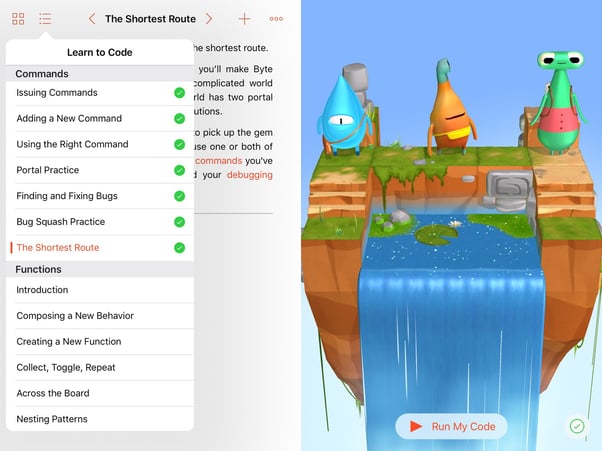
2. APP User interface
They are both native iOS languages so there's no need to worry if your application will look and work flawlessly. It will, no matter which of them you choose. The biggest difference is in iOS compatibility and the ease of UI development.
Objective-C is almost as old as the hills, so your application will run on any version of iOS available. Swift, on the other hand, needs at least iOS 7. It means you need to analyze what devices your users have and decide if it's ok for you to limit yourself to those with iPhones and iPads released after 2013. To be honest, there aren't many people who still use devices as old as 7 years, so it shouldn't be an issue.
Regarding the ease of UI development, Apple has introduced SwiftUI. This UI design tool built into Xcode 11 runs with iOS 13 (or newer, when it comes). It makes it super-easy to build native UI for all Apple platforms. You can assemble your UI by writing code or adjusting the preview. Changes are visible both in code and the preview at the same time.
It’s a draw. However, Swift’s advantage will probably grow in the future.
3. Speed of coding
The speed of coding influences the overall costs of app creation and shortens time-to-market. Despite both Objective-C and Swift being native languages for iOS, they're not alike. Swift is a much more modern language. It's also human-friendly thanks to simpler syntax. It means that it's easier to learn as well.
What's more, it's said that the same application written in Swift will have only 30% of lines of code in comparison to one written in Objective-C. A popular example is Lyft that converted Objective-C to Swift losing over 60% of the code. Decreasing the amount of code not only speeds up the development process but also results in fewer errors and quicker and cheaper testing.
Again, Swift wins.
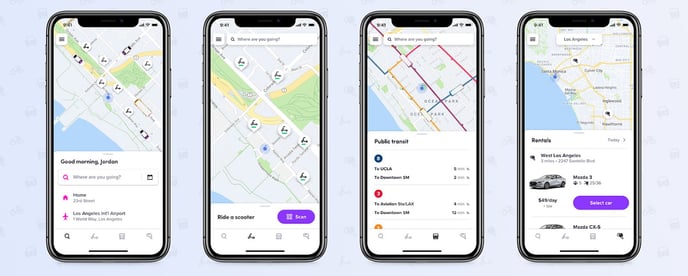
4. Performance
The better and more suitable technology you choose, the higher the performance. With higher performance come better UX, easier refactoring and maintenance, and more.
Apple claims Swift to be 2.6 times faster than Objective-C. It is possible thanks to the fact that Swift has been created as a completely new language with the purpose to be... swift.
Even though Apple has equipped Objective-C with a garbage collector, it still isn't as efficient as well written Swift code. Simpler syntax and performing type checking at compile-time, help Swift to outperform Objective-C. To optimize memory management Swift employs ARC (Automatic Reference Counting). Moreover, Swift supports Dynamic libraries which boost application performance as well.
Swift wins, and its advantage over Objective-C will grow.
5. Community & support
Proper support gives you the certainty that you will have access to know-how you need for successful development. Apart from professional support, it's also helpful to be part of a community of experts who will back you up with their experience and knowledge.
Although Objective-C is still supported by Apple, it has never been an open-source language. Swift, on the contrary, is open-source, so you can see in detail how it works and understand its rudiments more thoroughly. But there's more. Openness means there are more people engaged in more projects and more sources available for Swift developers.
While Objective-C has over 30 years old community, its population will be decreasing. Newbies tend to learn Swift instead and every year there will be fewer programmers who could support you with their expertise. Even today, among StackShare users (data from 2023), about 10 000 declare using Objective-C and over 16 000 use Swift. At the same time, Swift developers' community is very vital. What's more, even other companies have developed their Swift frameworks (like IBM).
Again, Swift clearly wins this round.
6. Toolkits
Standard IDE isn't usually enough for complex development. To ensure sufficient convenience developers use additional toolkits. Objective-C or Swift programmers are no different. The supplies vary though.
As a result of the long history of Objective-C, you will find many tools provided by Apple and some third-party companies. However, I wouldn't count on the creation of new tools for Objective-C development.
On the other hand, since Swift is an open-source language, it's extremely easy to find tools provided by third-party companies and contributors for this language. Moreover, Apple gives you a wide range of tools for enhancing your development performance. Recently they have announced tools like PencilKit supporting Apple Pencil, SiriKit supporting third-party apps with Apple's assistant, or MapKit increasing the possibilities of UI adjustment.
Swift wins here too, although the advantage isn’t that big. However, in the future Swift’s environment will develop much faster than the one of Objective-C.
7. Stability
Objective-C, with over three decades of history and its last stable release, version 2.0, dating back to 2016, offers a thoroughly understood environment. This venerable language's long-standing stability allows developers to anticipate and navigate potential issues, delivering a dependable platform, particularly for maintaining or updating older applications.
On the other hand, Swift, despite being significantly younger, exhibits a dynamic nature indicative of its continuous evolution. Regular updates, such as the recent release of Swift 5.8, reflect ongoing improvements and the addition of new features. Although some might interpret this continual change as a sign of lesser stability, it's actually indicative of the language's commitment to innovation and progress.
While there is a marked age difference between the two, deciding which language is superior in terms of stability depends on your project's specific needs. Objective-C provides an extensively explored and static environment, making it a reliable choice for certain projects. Conversely, Swift's consistent development and enhancement make it ideal for projects that demand cutting-edge features and modern conventions.
In light of these considerations, it's fair to conclude that both languages have their distinct advantages when it comes to stability. Therefore, despite their different trajectories and development stages, the comparison can be considered a draw.
8. Documentation
The importance of documentation cannot be overestimated. The better you know the language and its tools, the easier it is to avoid mistakes.
Both languages have vast documentation. Objective-C mainly because it's been around for over 30 years now. You can find its documentation in the Apple archive. But then, documentation for Swift is constantly updated. You will find more new sources for this language. Also, keep in mind that it's open-source, so there are many more third-party sources for you to find. You should start with Apple service for developers and dedicated Swift webpage. There's also a GitHub repository for Swift available.
Thanks to constant actualization, Swift wins this round as well.
9. Maturity of the platform
Objective-C is a lot older than Swift. But does it mean it's more mature? Swift has been designed according to Apple's experience with Objective-C as well.
Therefore, even if its history is much shorter, Swift is not immature, since it draws from a long tradition. Moreover, we already use version 5.2.4, and it only shows that Swift grows up much faster.
Apple constantly makes an effort to make Swift your first choice. The environment around Swift is growing and even though Objective-C might be more matured,
Swift is an “adult” too. So, we have a draw here.
10. Talent pool
Your dream solution might be the best ever seen, but without specialists, who know how to use it, it’s futile. For a company, it’s crucial to know how expensive and easy to find their developers are.
According to the recent Tiobe Index released in May 2020, Swift is the 11th most popular language with almost three times as many votes as the year before. Objective-C received only 50% of votes coasted for Swift. The number of Objective-C developers will decline, while the population of Swift developers will grow.
There are a couple of reasons for that. First, Apple probably will steadily withdraw from Objective-C. You can observe how Swift is developed and promoted. Second, Swift is much easier to learn and start coding. Third, Swift is an open-source language, and that always promotes the growth of a community.
Swift wins the last round by a nose.
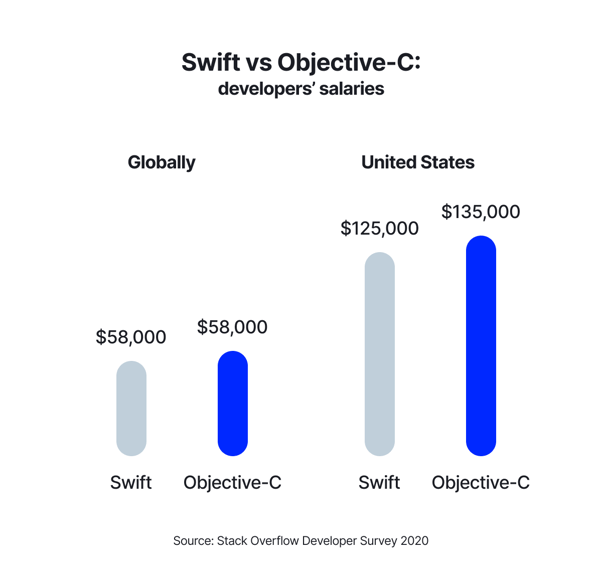
Examples of iOS apps coded in Swift and Objective-C
Another aspect to bear in mind in this 2023 analysis of Swift vs. Objective-C involves the user base and application of each language. However, when evaluating this, it's essential to consider the historical context. Prior to 2014, iOS applications would typically be written in Objective-C, simply because Swift didn't exist yet.
Currently, many companies are exploring the possibility of transitioning from Objective-C to Swift. Conversely, there's a noticeable lack of instances where a switch from Swift back to Objective-C is considered. Further complicating matters is the fact that both languages can coexist within the same application, leading to many cases of software that utilizes both Objective-C and Swift.
For instance, Uber is an example of a company that leverages both Objective-C and Swift in its applications. In contrast, Lyft has made a complete transition to Swift. LinkedIn follows a similar trend with their apps. As we approach the midway point of this decade, it's becoming increasingly rare to find a company keen on sticking solely with Objective-C – a development that is hardly surprising given the continued advancements in Swift.
Wrapping Up
In our exploration of Swift vs. Objective-C in the context of 2023, our aim was to provide all the insights necessary for you to make an informed choice. Nevertheless, if you find yourself hesitant about which language to adopt, we're here to help.
Don't hesitate to reach out to us. Our team of experienced software consultants is ready and eager to provide guidance tailored to your specific project. By considering the unique needs and goals of your project, they'll help you make the optimal decision regarding the choice of programming language. In the ever-evolving landscape of software development, trust us to help you navigate your path forward.
Are you looking for iOS app devs? There are dozens of experienced Swift and Objective-C mobile developers in our talent network. We know how to connect you with the talents you need. They fit perfectly in your industry, technology, and company culture. Let us support your business with expert iOS app developers.

Dawid is a full stack developer experienced in creating Ruby on Rails and React Native apps from naught to implementation. Technological superhero, delivering amazing solutions for our clients and helping them grow.
View all author posts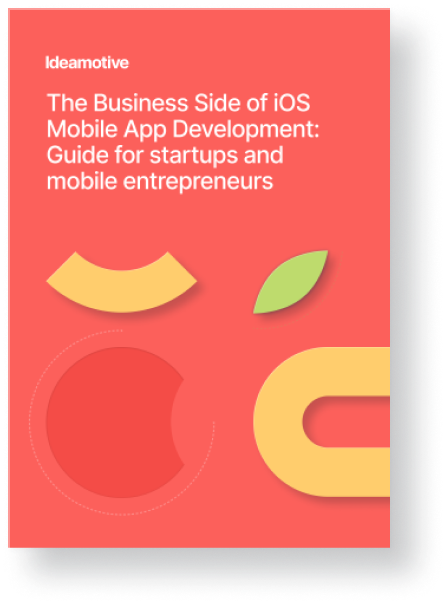
The Business Side of iOS Mobile App Development
Guide for Startups and Mobile Entrepreneurs
Read NowTrending articles
21 Dazzling Examples of Mobile App UI Design to Inspire You in 2023
Michał Pruciak 7 min read
MedTech vs HealthTech vs BioTech: What Are The Differences?
Michał Pruciak 7 min read
10 Business Applications of Neural Network (With Examples!)
Michał Pruciak 4 min read
10 Irresistible Examples of Web Design Best Practices for 2023
Adam Kozłowski 7 min read
21 Amazing Examples Of React Web Development
Michał Pruciak 14 min read

Looking for a specific type of software development service?
Rated 4.8 / 5.0 by clients from various industries and locations.



